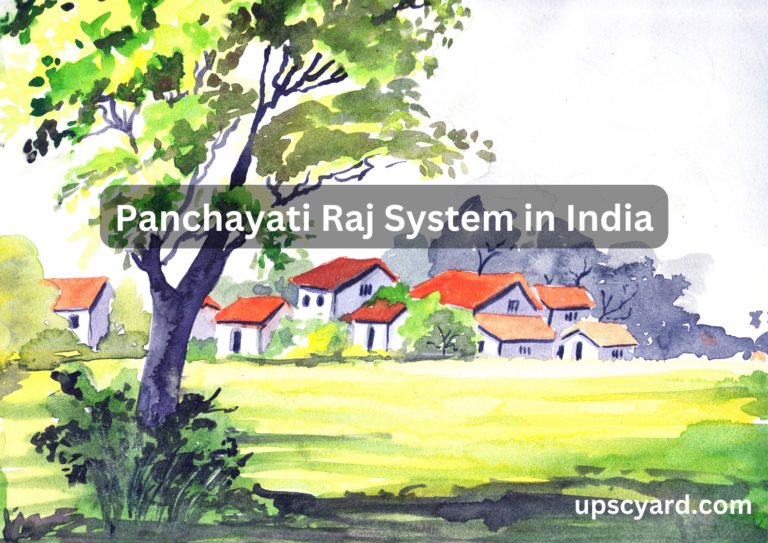Non-governmental Organizations NGOs
What is NGOs ?
According to the World Bank, NGOs are non-profit entities dedicated to alleviating suffering, championing the interests of the underprivileged, safeguarding the environment, offering essential social services, and fostering community development.
In the context of India, the term NGO encompasses a diverse range of organizations, including non-governmental, quasi-governmental, voluntary, and non-voluntary entities. NGO activities encompass a wide spectrum, spanning environmental protection, social initiatives, advocacy, and human rights efforts. Their endeavors can encompass either local or far-reaching objectives, working to drive social or political transformation.
These organizations exist independently from the government, hold legal recognition, and are formally registered under specific Acts (such as the Societies Registration Act, 1860 in India) endorsed by the government.
Constitutional Provisions
Article 19 (1) (c)
Guarantees Indian citizens the freedom to create associations and unions. The case of TK Rangarajan vs. the State of Tamil Nadu clarified that while this right doesn’t encompass the right to strike. This article also grants recognition to NGOs operating in India.
Article 43
Emphasizes the State’s commitment to fostering cooperatives in rural regions.
In the Concurrent List under Entry 28, there is a reference to matters concerning charities, charitable organizations, religious endowments, and religious institutions.
Types of NGOs
Trusts: Private trusts are registered under the Indian Trusts Act, 1882 by the central government, while public trusts are registered based on relevant state legislation.
Societies: To establish a society, one needs to complete the registration process as per the Societies Registration Act, 1860.
Charitable Companies: Charitable companies are formed in line with section 8 of the Companies Act, 2013. However, they face more stringent compliance requirements due to easy access to loans and advances compared to trusts or societies. Additionally, they are subject to Income Tax as per the IT Act, 1961.
Some TOP NGOs of india
- Azim Premji Foundation: This organization operates in the fields of education, healthcare, and rural development. It stands as one of the most prominent charitable foundations in India.
- Cancer Patients Aid Association (CPAA): This NGO extends free cancer treatment to individuals who lack the financial means. It operates across more than 100 centers throughout India.
- CRY – Child Rights and You: Focused on safeguarding children’s rights, this NGO ensures access to education, healthcare, and protection for disadvantaged children.
- Doctors Without Borders (MSF): An international organization, MSF delivers vital medical aid without discrimination based on race, religion, or politics. It has been active in India since 1999.
- Hridaya Care: Dedicated to heart health, this NGO offers free heart surgery to individuals who lack the resources for such treatment.
- Naandi Foundation: Working in water, sanitation, and agriculture, this foundation has significantly contributed to providing clean drinking water to a multitude of people in India.
- Prayas: Committed to the empowerment of women and children, this NGO operates over 100 schools and centers across the country.
- Seva Bharati: Operating in education, healthcare, and rural development, this NGO runs an extensive network of over 10,000 schools and centers throughout India.
- Tata Trusts: A conglomerate of philanthropic trusts established by the Tata family, it is engaged in education, healthcare, and rural development.
- Unicef India: The Indian wing of UNICEF, this organization is dedicated to promoting the well-being of children across the nation.
Role of Non-governmental Organizations (NGOs)
Non-governmental organizations (NGOs) play a crucial and influential role in the process of development. Their impact spans from driving significant social or political transformations on a wide scale to creating positive change at the grassroots level. NGOs are instrumental in advancing society, uplifting communities, and fostering active citizen engagement.
Outlined below are some of the vital functions that NGOs undertake in the realm of development:
- Delivering Essential Social Services: NGOs frequently bridge the gap in delivering fundamental social services to individuals who might not have access through governmental or private channels. These services encompass education, healthcare, and efforts to alleviate poverty.
- Advocacy for Transformation: NGOs effectively employ their voice to advocate for change across diverse fronts, including safeguarding human rights, preserving the environment, and championing gender equality. Additionally, they engage in lobbying efforts to encourage governments to adopt policies that uplift the disadvantaged and marginalized.
- Community Empowerment: Through the provision of skill sets and knowledge, NGOs empower communities to enhance their quality of life. This involves training in areas such as leadership, financial management, and resolving conflicts.
- Cultivating Peace: NGOs contribute to the cultivation of peace by mediating conflicts, offering humanitarian aid, and fostering understanding between different societal groups.
- Rapid Disaster Response: During times of crises, NGOs are swift in their response, delivering essential supplies like food, shelter, and medical assistance to those in dire need. They also engage in post-disaster reconstruction efforts to help affected communities recover.
Nonetheless, NGOs face their own set of challenges. These include limited funding, potential lack of expertise, and susceptibility to corruption. However, they hold several advantages over governmental and private entities. They often exhibit greater flexibility and responsiveness to the needs of local communities. Their ability to build trust and rapport with populations wary of government or other institutions further enhances their impact.
Regulations for NGOs
In India, the legal framework governing the registration and operations of non-governmental organizations (NGOs) comprises several key acts and regulations:
- Foreign Exchange Management Act, 1999 (FEMA): FEMA’s purpose is to streamline and amend foreign exchange regulations, facilitating external trade, payments, and fostering the orderly development of the foreign exchange market in India. Transactions under FEMA are referred to as fees or salaries, in contrast to those under FCRA (Foreign Contribution Regulation Act), which are termed grants or contributions.
- Foreign Contribution (Regulation) Act, 2010: This act oversees the acceptance and utilization of foreign contributions by NGOs in India. NGOs receiving foreign contributions are required to register under this act.
- Societies Registration Act, 1860: This legislation governs the registration process for societies in India. NGOs registered under this act are recognized as “societies.”
- Indian Trusts Act, 1882: The Indian Trusts Act governs the registration of trusts in India. NGOs registered under this act are termed as “trusts.”
- Income Tax Act, 1961: The Income Tax Act offers tax exemptions for certain categories of NGOs. Eligible NGOs seeking tax exemption must register under this act.
The year 2016 saw the consolidation of powers to monitor NGOs under the Ministry of Finance through FEMA. The objective was to centralize oversight of foreign contributions, enhancing monitoring and regulation. This measure aimed to ensure effective and streamlined scrutiny of foreign fund flows to these organizations.
Furthermore, alongside these legal provisions, NGOs operating in India are subject to overarching laws such as the Indian Penal Code and the Code of Civil Procedure.
The process of registering NGOs in India varies based on their specific type. However, the general steps encompass:
- Preparation of essential documents, including memorandum of association, articles of association, and trust deeds.
- Submission of these documents to the relevant registrar of societies or trusts, corresponding to the NGO’s geographical location.
- Evaluation of the submitted documents by the registrar, with approval granted if the requirements are met.
- Issuance of a registration certificate to the NGO upon approval.
Post-registration, NGOs must adhere to ongoing obligations, encompassing the submission of annual returns and audited financial statements to the registrar. Failing compliance may result in deregistration.
The regulatory framework for NGOs in India aims to ensure their accountability, transparency, and ethical operation. It serves to safeguard the public against fraud and misuse while promoting responsible contributions to society.
Challenges faced by NGOs
Non-governmental organizations (NGOs) operating in India encounter a series of hurdles that impact their operations and effectiveness. These challenges encompass:
- Funding Shortages: Securing financial support remains a persistent struggle for Indian NGOs, both domestically and internationally. This stems from various factors including the relatively limited disposable income within India’s population, insufficient awareness regarding NGO contributions, and stringent government regulations governing foreign funding.
- Skilled Workforce Deficiency: A shortage of proficient personnel, equipped with technical know-how and effective managerial skills, often plagues Indian NGOs. The scarcity of comprehensive training programs for NGO employees contributes to this issue. Moreover, salaries offered by NGOs may fall short of those in the private sector, making recruitment and retention challenging.
- Bureaucratic Hurdles: NGOs in India frequently grapple with bureaucratic hurdles at both the central and state levels. Navigating administrative processes can prove arduous, resulting in delays and frustrating bottlenecks for NGO personnel.
- Corruption Concerns: The specter of corruption looms over some Indian NGOs, tarnishing the sector’s reputation. Instances of fund misuse and unethical conduct have been reported, casting a shadow over the broader NGO landscape. This negative perception hampers fundraising efforts and undermines public trust.
- Security Risks: NGOs operating in regions marked by conflict or unrest face significant security risks. Such challenges compromise their ability to function effectively and place the safety of NGO workers in jeopardy.
Despite these formidable challenges, NGOs in India remain steadfast in their commitment to development. Their significance is undeniable as they deliver essential services to marginalized communities and leverage their influence to advocate for change across a spectrum of issues. NGOs hold a pivotal position within the fabric of Indian society, poised to continue their influential role in the nation’s ongoing development journey.




